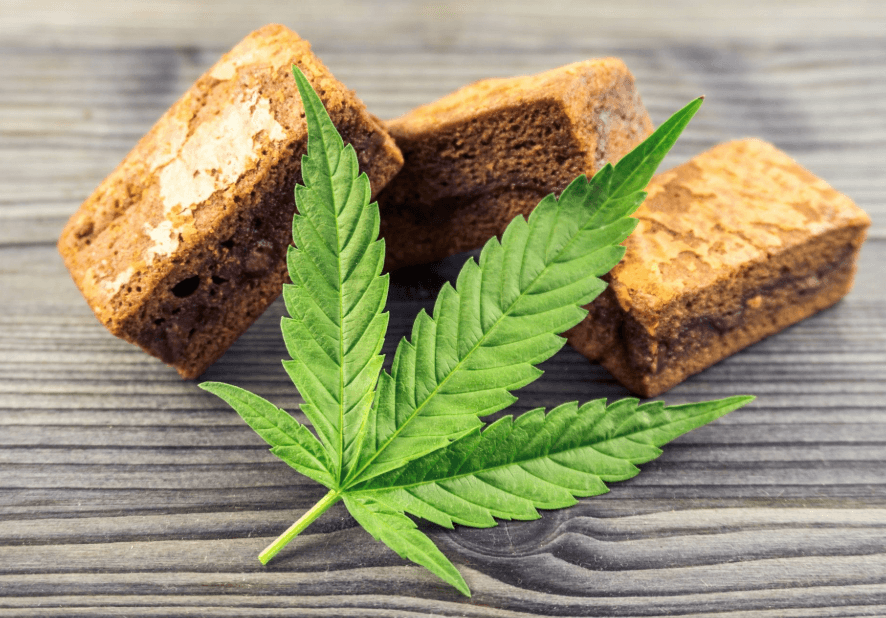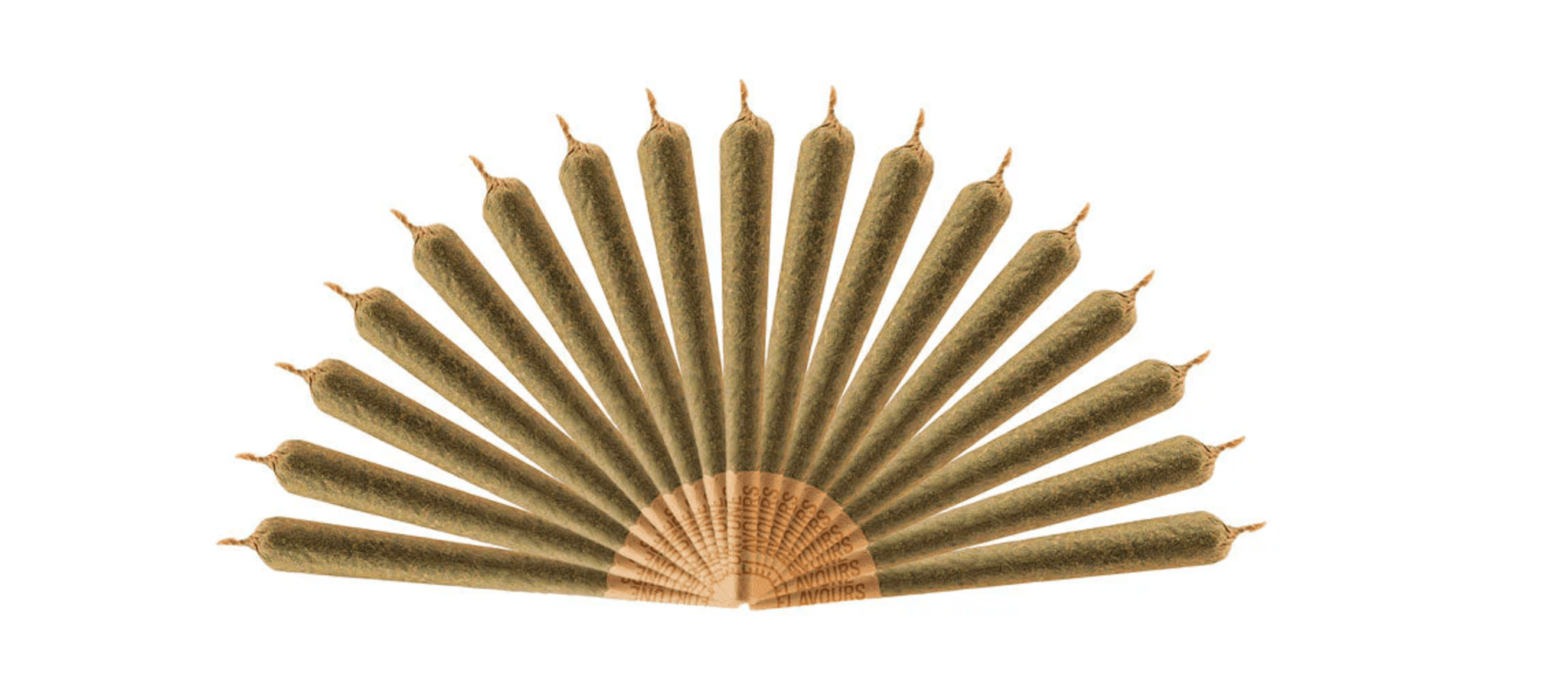Calculating how much CBD to take is simpler than it sounds. With new CBD products lining the market, and no specific dosing guidelines, there is bound to be some confusion. This post will guide you on all you need to about optimal CBD dosing.
CBD dosage: where to start?
While calculating how much Cannabidiol you should take depends on several factors (which we’ll discuss shortly), there are two main points you need to consider first.
- A credible brand you can trust
It’s vital to choose a credible brand that displays accurate CBD information on the product’s packaging and delivers on the CBD concentration advertised. You need to ensure that any CBD product you purchase, be it Cannabidiol, CBD flower, capsules, or gummies, is authentic and free from unwanted chemicals and additives.
At Fortune Flavours, all our CBD products are manufactured to the highest standards and third-party lab tested. This ensures the highest quality and authenticity of our CBD products. They are also completely non-psychoactive and well within UK guidelines (containing less than 0.2% THC). You can view a detailed breakdown of the contents, in each batch of CBD oil and CBD flowers before trying it for yourself.
- Starting low and gradually building up
Many experts agree that if you’re a beginner CBD user, you should start with the lowest dose and gradually build it up over time. The same principle holds if you have some experience with CBD and are looking to try different products.
To take advantage of all potential CBD benefits, you should not flood your body with CBD. There should be a right balance for it to work in harmony with your body. You should monitor how well your body reacts to it and adjust the concentration and frequency accordingly.
Read our related blog on: How to take CBD
How much CBD to take a day?
The amount of CBD you take depends on several factors. To begin with, your individual body weight, height, metabolism, and body chemistry affect how well you tolerate Cannabidiol. Besides these, other factors that determine how much CBD you should take are:
The form of CBD you are taking
The type of CBD product you are using matters when determining how much CBD to take. This is because it directly affects how it’s absorbed by your body and how soon it takes effect. Some common forms of CBD include:
- Oils and tinctures
- Edibles (e.g., CBD gummies)
- Capsules
- Oral sprays
- Creams and lotions
- Vaping or smoking CBD flower
CBD doses usually vary among different forms. For example, a standard dose in CBD gummies is around 5 mg per gummy. For oils and tinctures, it is usually about 1 mg per drop.
Oral sprays and tinctures that you consume sublingually, get absorbed directly into your bloodstream. Their effects kick in faster, usually in about 15-45 minutes. On the other hand, edibles such as gummies have to pass through your digestive tract before they’re absorbed. This way, it usually takes up to 2 hours to feel the effects of CBD.
Moreover, much of the Cannabidiol is lost in the digestion process and the amount that is absorbed is fairly low. Topicals, such as CBD creams and lotions, usually take effect in 45-60 minutes.
Vaping or smoking CBD gives you a high bioavailability (amount and volume of CBD absorbed). The CBD is absorbed directly into your bloodstream and you can experience rapid effects, usually within 15-30 minutes.
The condition you are treating
People use CBD for its potential benefits in helping alleviate all sorts of ailments, from nausea and anxiety to arthritis pain. How much CBD to take therefore depends upon what you are using it for.
For example, the Arthritis Foundation recommends starting with a low CBD dosage. This is usually a few milligrams of any sublingual form of CBD, twice a day. If you don’t get enough pain relief, you should then increase the dose by the same amount after a week.
The dosage recommendations will change if you’re using CBD for any other condition.
Other medications you are taking
Even though CBD is usually well tolerated, there is still limited data on possible drug interactions. Cannabidiol could potentially interfere with your other medications and may change the way a drug is metabolised. There is some evidence that it may interact with antidepressants, immune suppressant drugs and blood thinners. If you are taking any medications, it is, therefore, best to speak to your doctor before taking CBD.
Even if you’re not taking any medication, it is still a good idea to consult your doctor before using CBD. Your doctor can recommend an appropriate dosage. This is especially important if you are taking any prescription medicine that contains Cannabidiol. An example is Epidiolex, a type of seizure medication.
If your doctor doesn’t provide any CBD dosage recommendation, you should start with a small dose and gradually increase it. For example, you can start with 20-40 mg a day. After a week, you could increase this amount by 5mg. You can continue doing this until you feel you’ve found the optimal dosage for effectively treating your symptoms.
What research says about how much CBD to take
As per a 2017 review, CBD is a relatively safe treatment. However, none of the studies analysed in the review gave one uniform dosage of CBD that everyone should take. Instead, it highlighted how different people (and in the case of animals, different animals) respond to varying CBD dosages. Dosages within the range of 20-1500 mg per day were observed in most human studies.
What is a good CBD strength?
Up till now, Cannabidiol has only been approved as a medical treatment for specific forms of epilepsy. For other ailments, doctors know little about what dosage people should take. The basic rule for appropriate dosage, as with any other drug, is that it should provide a therapeutic effect and be well tolerated by the user.
In some clinical studies, researchers have used varying oral dosages of CBD per day, ranging from 100-800 mg.
Other studies have used even higher doses. According to one review, a person reported an improvement in symptoms of psychosis after taking 1200 mg per day for a few weeks. In another study, individuals with schizophrenia reported improvements after taking increasing dosages of 40-1280 mg per day for 4 weeks. In another study examining the effects of CBD in people with psychosis and Parkinson’s disease, six participants showed marked improvement in symptoms with a CBD dosage of 150 mg per day.
The following are the common doses of CBD and methods of administration that researchers have used to study its beneficial effects for different medical conditions:
- 1. Medical Condition: Anxiety
Dose of CBD: 300-600 mg
Form: Oral - 2. Medical condition: Pain due to cancer
Dose of CBD: 50-600 mg per day
Form: Oral - 3.Medical condition: type 2 diabetes
Dose of CBD: 100 mg twice daily
Form: Oral - 4.Medical condition: Bowel disease
Dose of CBD: 5 mg twice daily
Form: Sublingual (olive oil drops)
Can you take too much CBD?
Yes, it is possible. Redosing is one of the likeliest reasons why people end up taking too much of anything. While Cannabidiol is usually well-tolerated, even at high doses, it doesn’t mean that you can’t end up with unwanted effects.
Taking too much CBD could result in:
- Fatigue
- Diarrhoea
- Changes in appetite
- Changes in weight
A 2011 review on the safety and side effects of cannabinol found that regular use of CBD, even with daily high doses like 1500 mg a day, is received well by people. However, a recent 2019 study on mice indicated that high doses of CBD may cause liver damage.
How much CBD to take for nausea?
There is no specific CBD dose for nausea. Besides, there is limited scientific research on the usage of CBD for nausea. Most of the studies done on this topic involve people with cancer. A 2016 study found that patients suffering from nausea due to chemotherapy found relief after taking Sativex, a medicine containing both CBD and THC.
An animal research study from 2011 suggests that CBD may help with nausea. This may be due to its interaction with the serotonin receptor. Serotonin is a hormone that regulates behaviour, mood, and general wellbeing.
How much CBD to take for anxiety?
While there is no one standard dose of CBD for anxiety, research suggests that CBD may help alleviate symptoms associated with social anxiety disorder, obsessive-compulsive disorder, and generalized anxiety disorder.
One 2020 review of previous studies found that participants showed marked improvement in anxiety levels when administered single doses of CBD ranging from 300-600 mg. These results show promise that CBD may effectively alleviate symptoms of acute anxiety.
Read our related blog on: CBD for Anxiety
How much CBD to take for cancer?
There are limited studies addressing the potential of CBD to help treat cancer. There is, therefore, no standard dose of CBD for cancer.
Some of the few studies examining CBD’s efficacy in treating different cancers are:
- A 2014 study focusing on in vivo experimental models of colon cancer indicated that Cannabidiol may impede the spread of colorectal cancer cells.
- Research from 2010 exhibited the efficacy of CBD in preclinical models of metastatic breast cancer. The study found that CBD markedly reduced breast cancer cell growth.
CBD is also believed to have anti-anxiety and anti-inflammatory properties. Some research suggests that cannabinoids like CBD may help alleviate neuropathic pain and nausea associated with chemotherapy in cancer patients.
However, it is too soon to say whether CBD is a completely safe and effective treatment for different cancers in humans. CBD should therefore not be considered a substitute for other medical cancer treatments.
Conclusion
How much CBD to take generally depends on a variety of factors. There is no universal dose of Cannabidiol that suits all people and all ailments. It varies from person to person.
If you are trying Cannabidiol for the first time, it is always advisable to consult your doctor about the appropriate dosage. CBD may potentially interact with other medications and it is good to avoid any unwanted risks by discussing CBD usage with your doctor beforehand.
If you liked reading this, be sure to check our other blog: The Ultimate Guide To CBD


